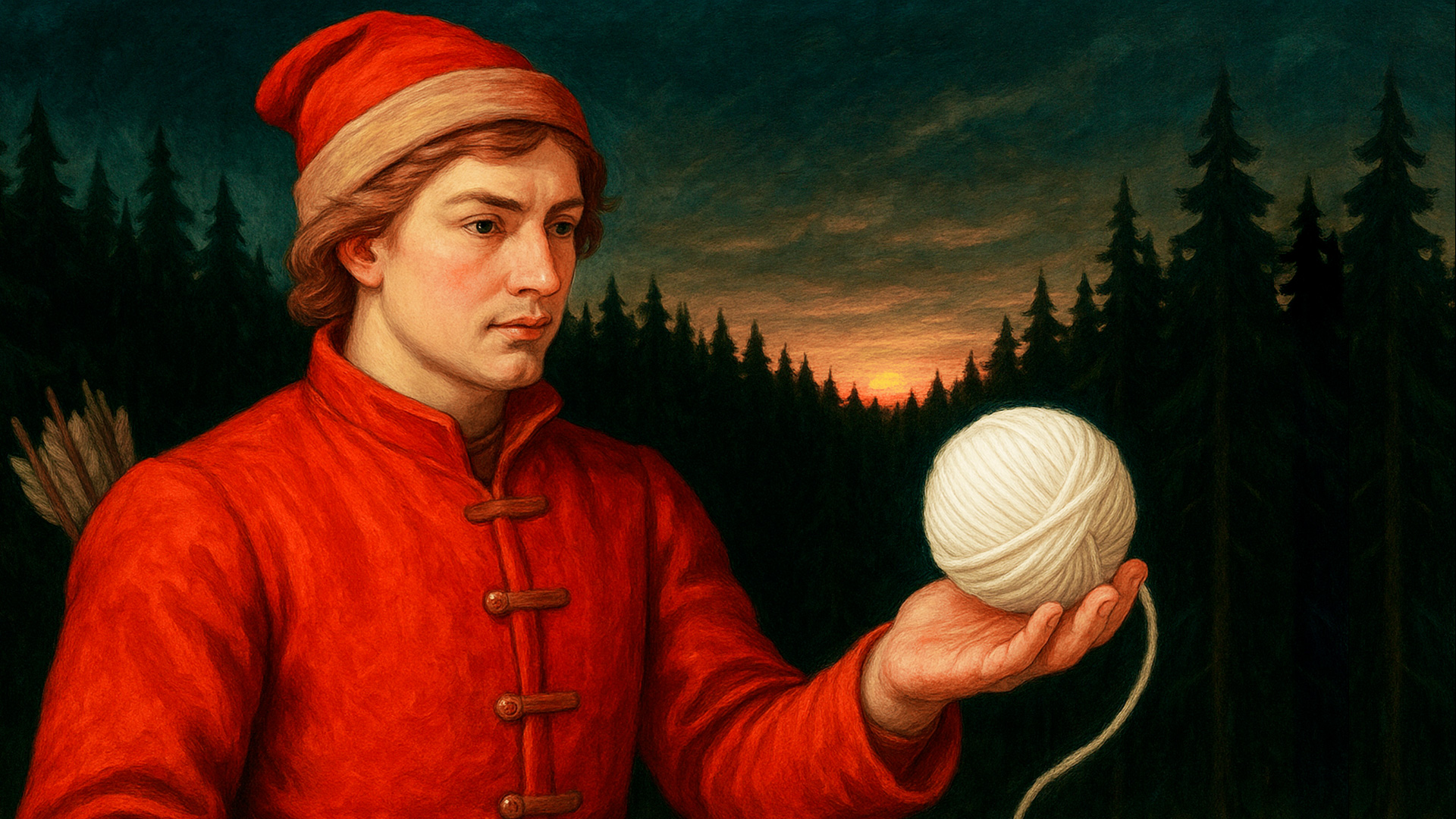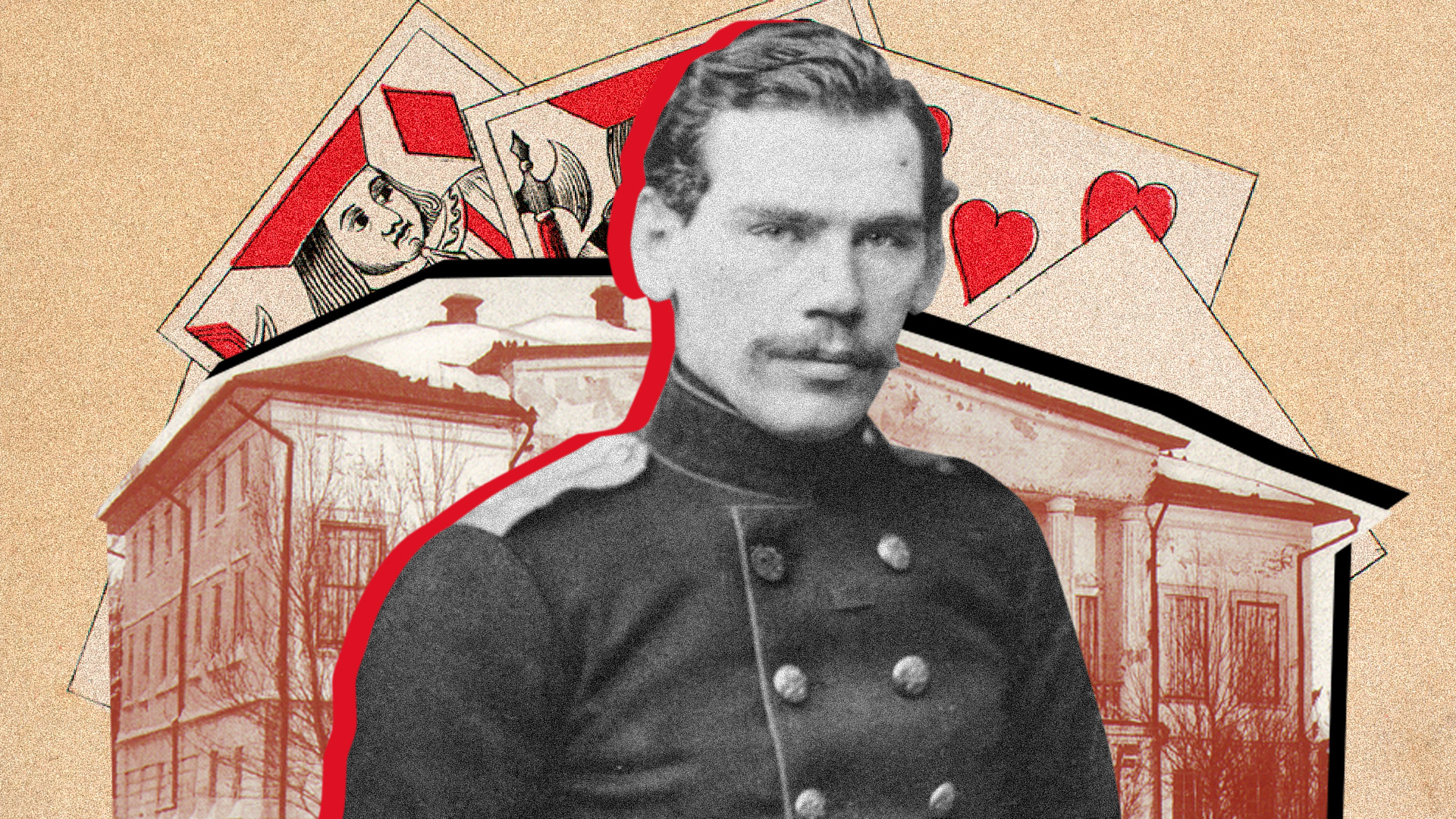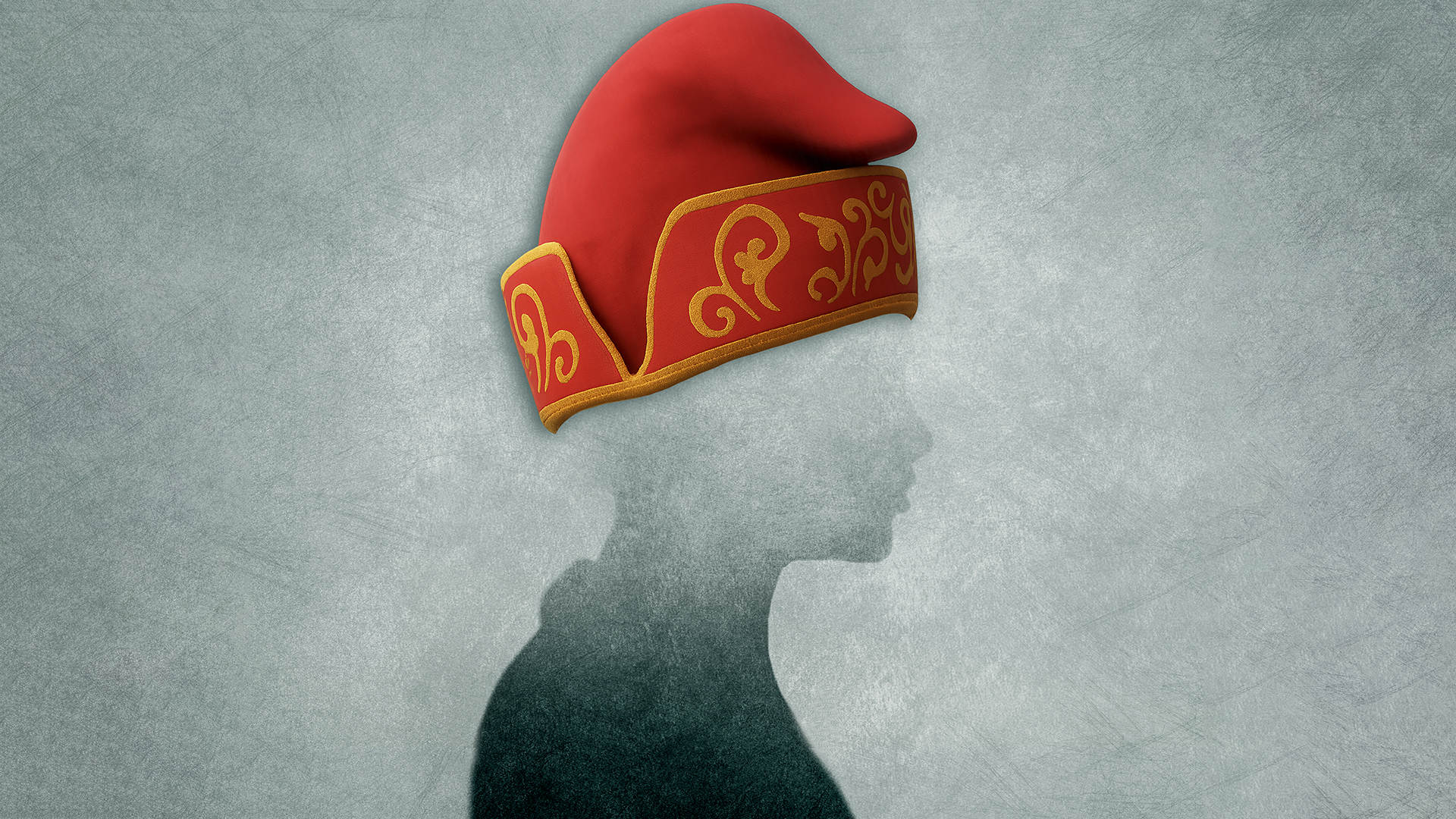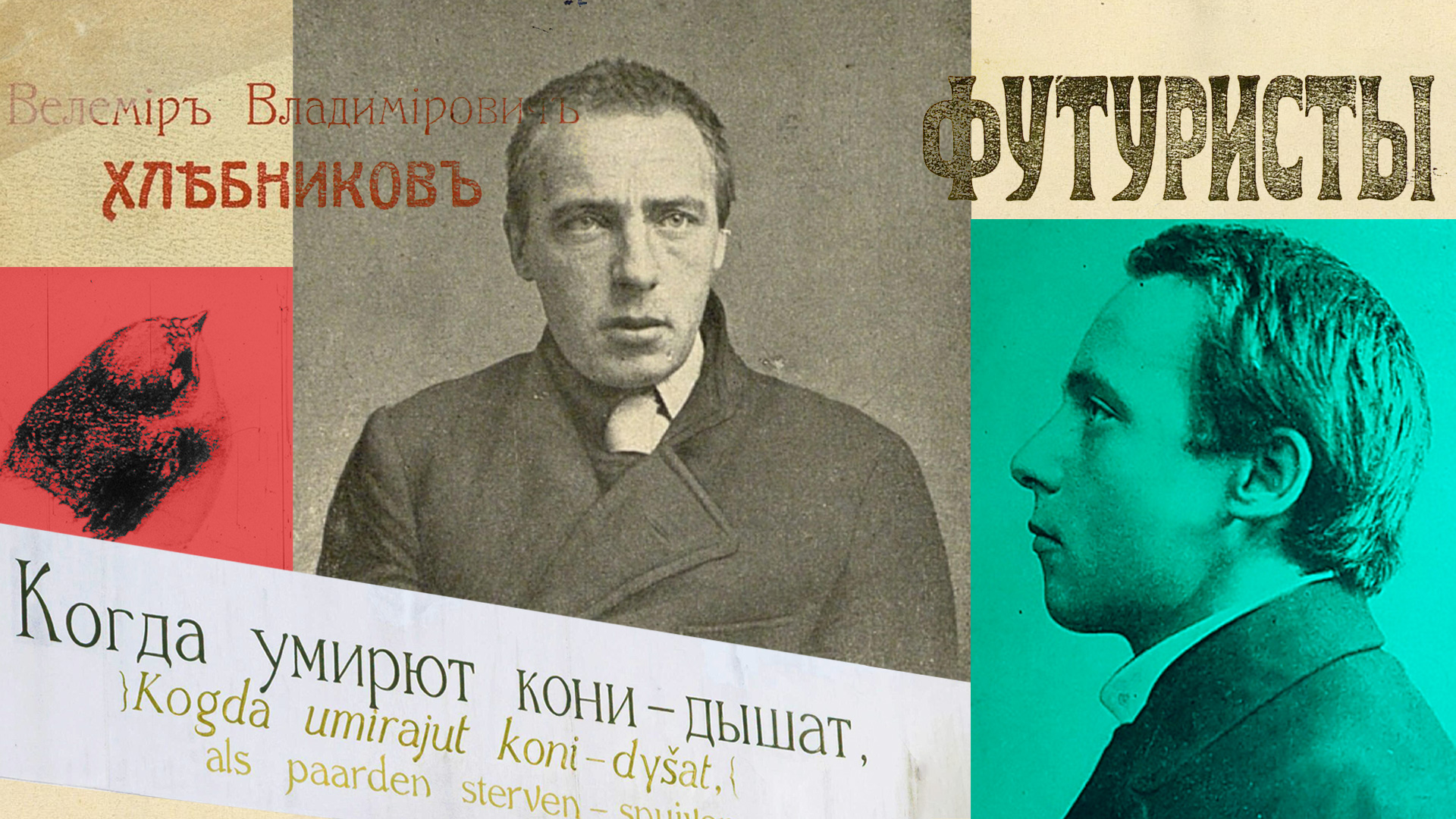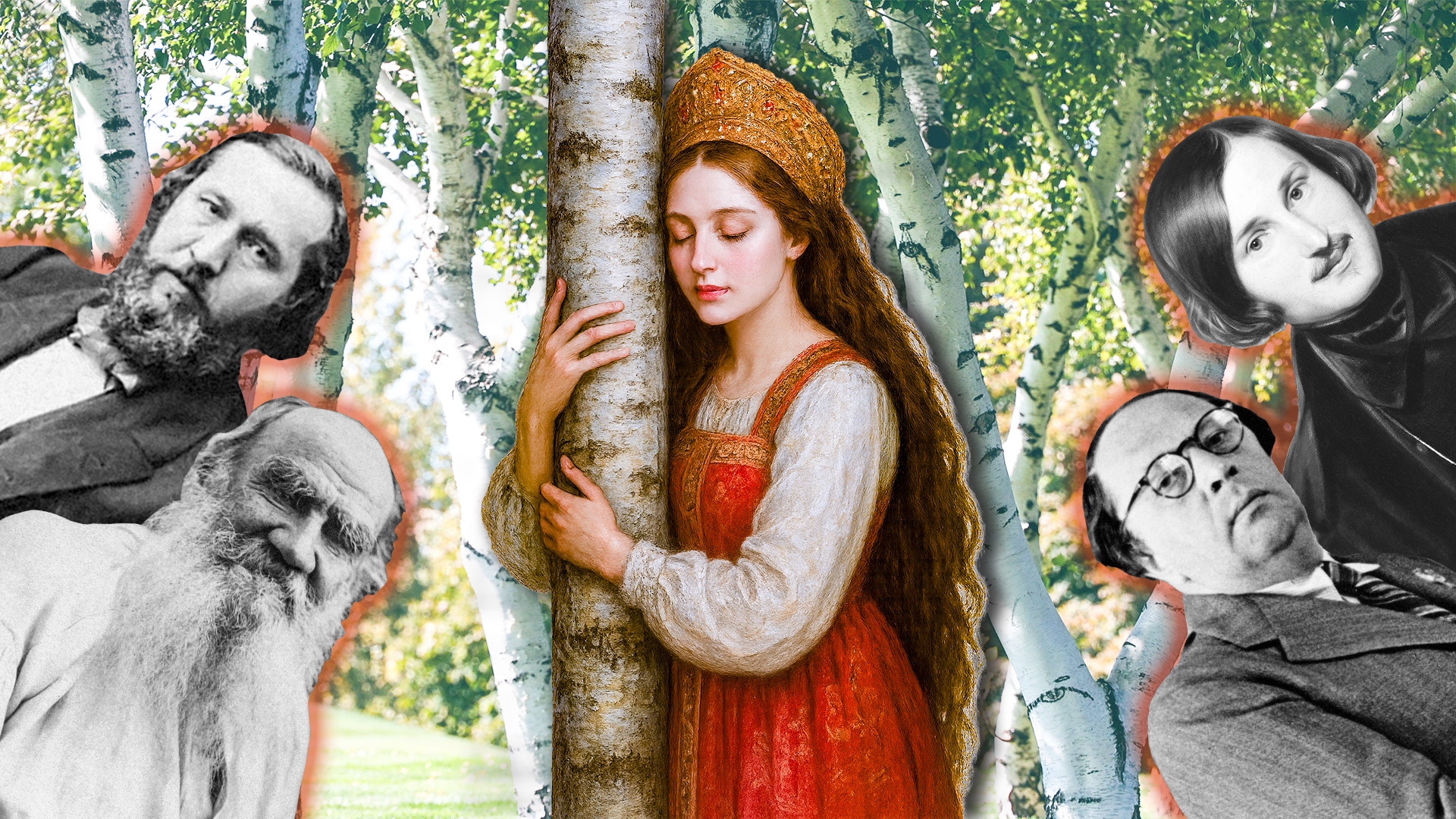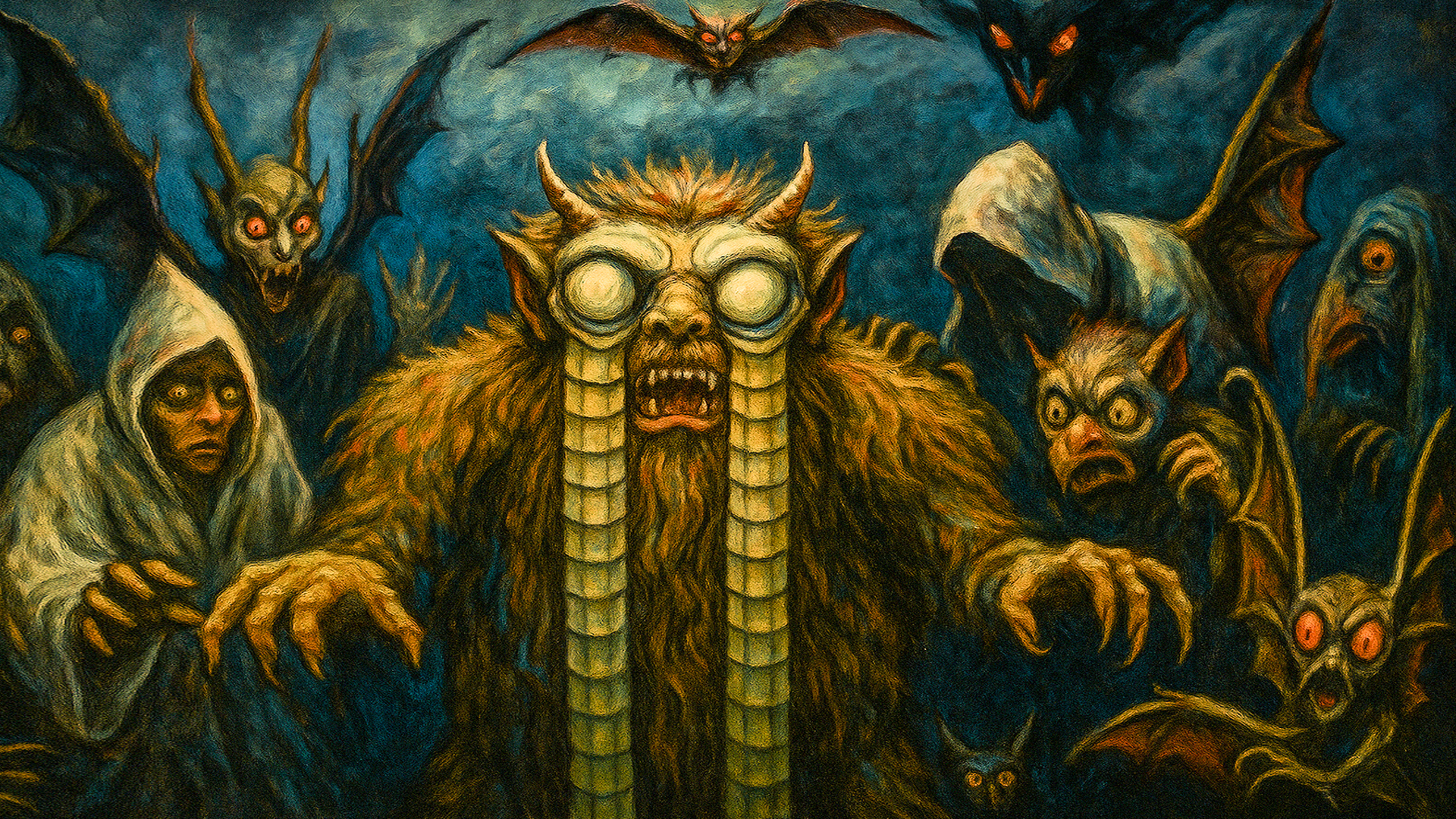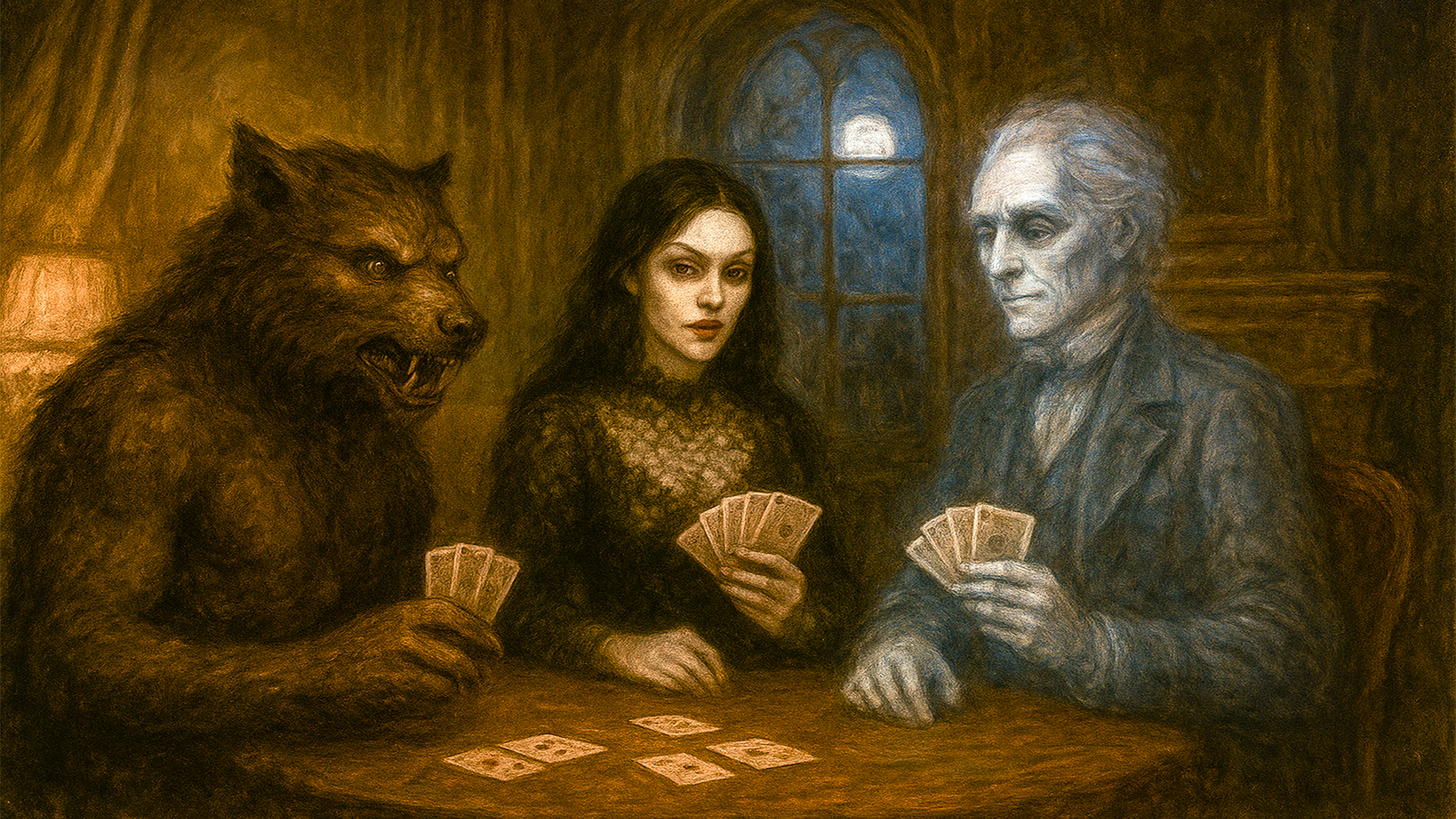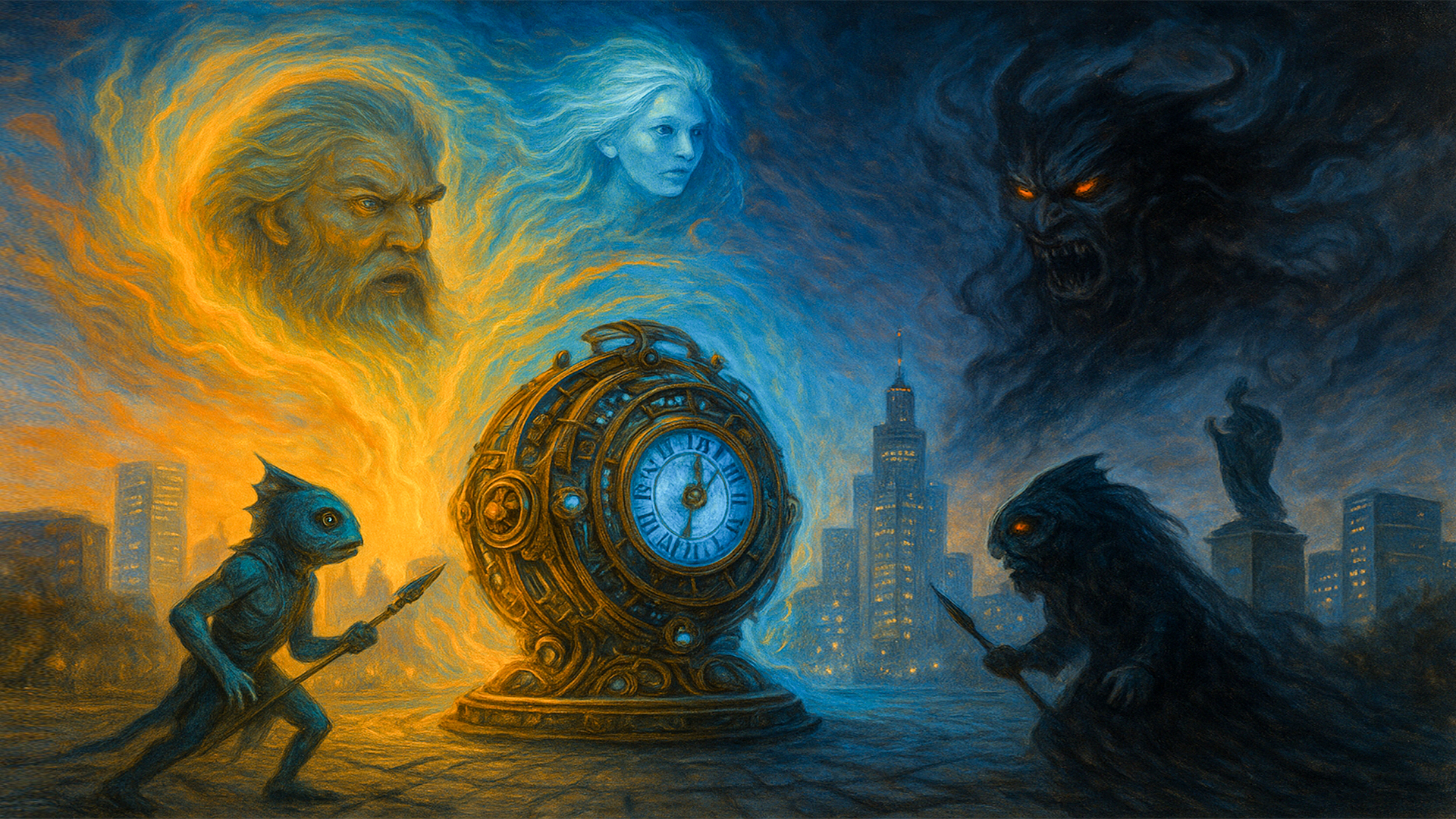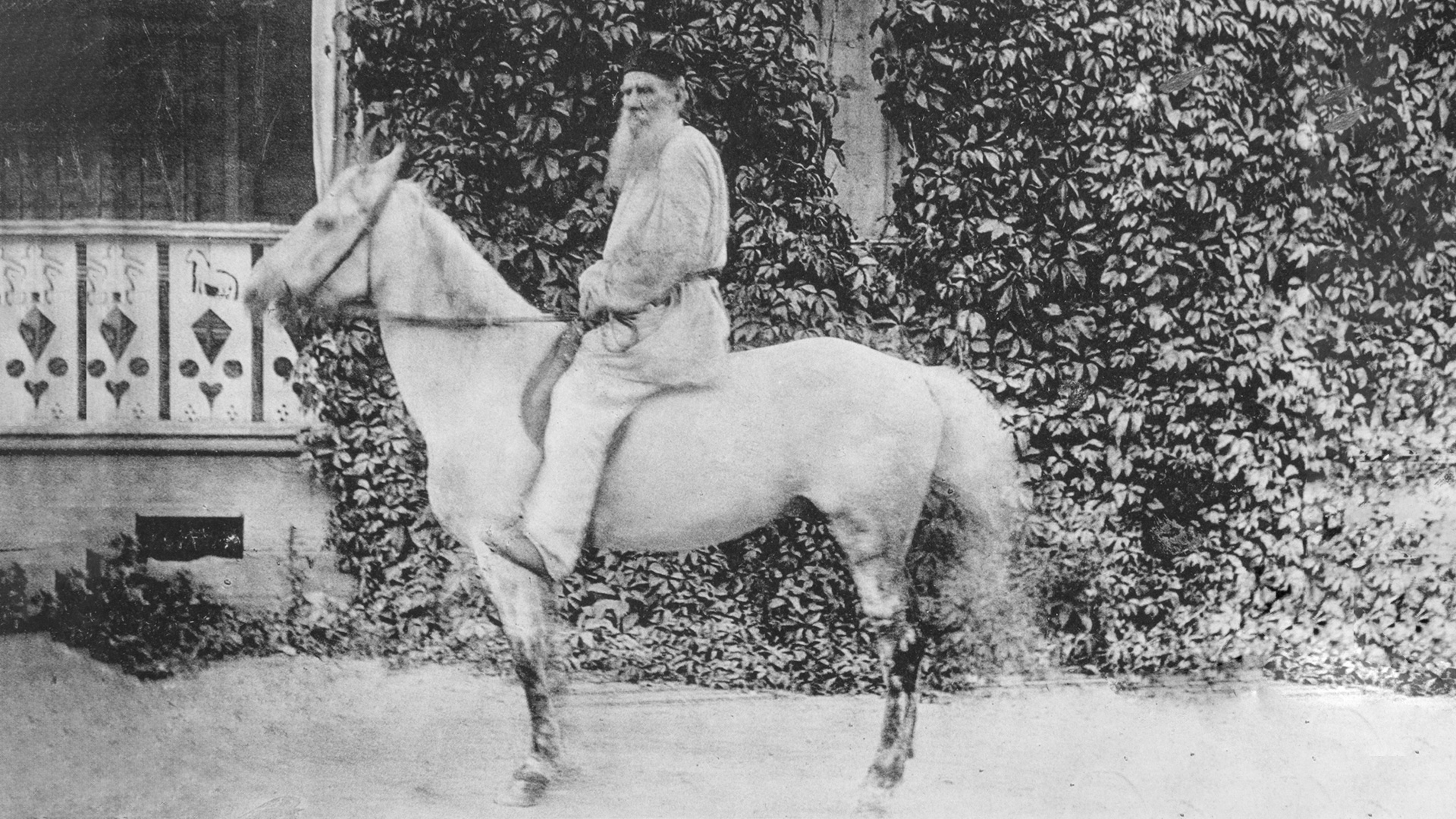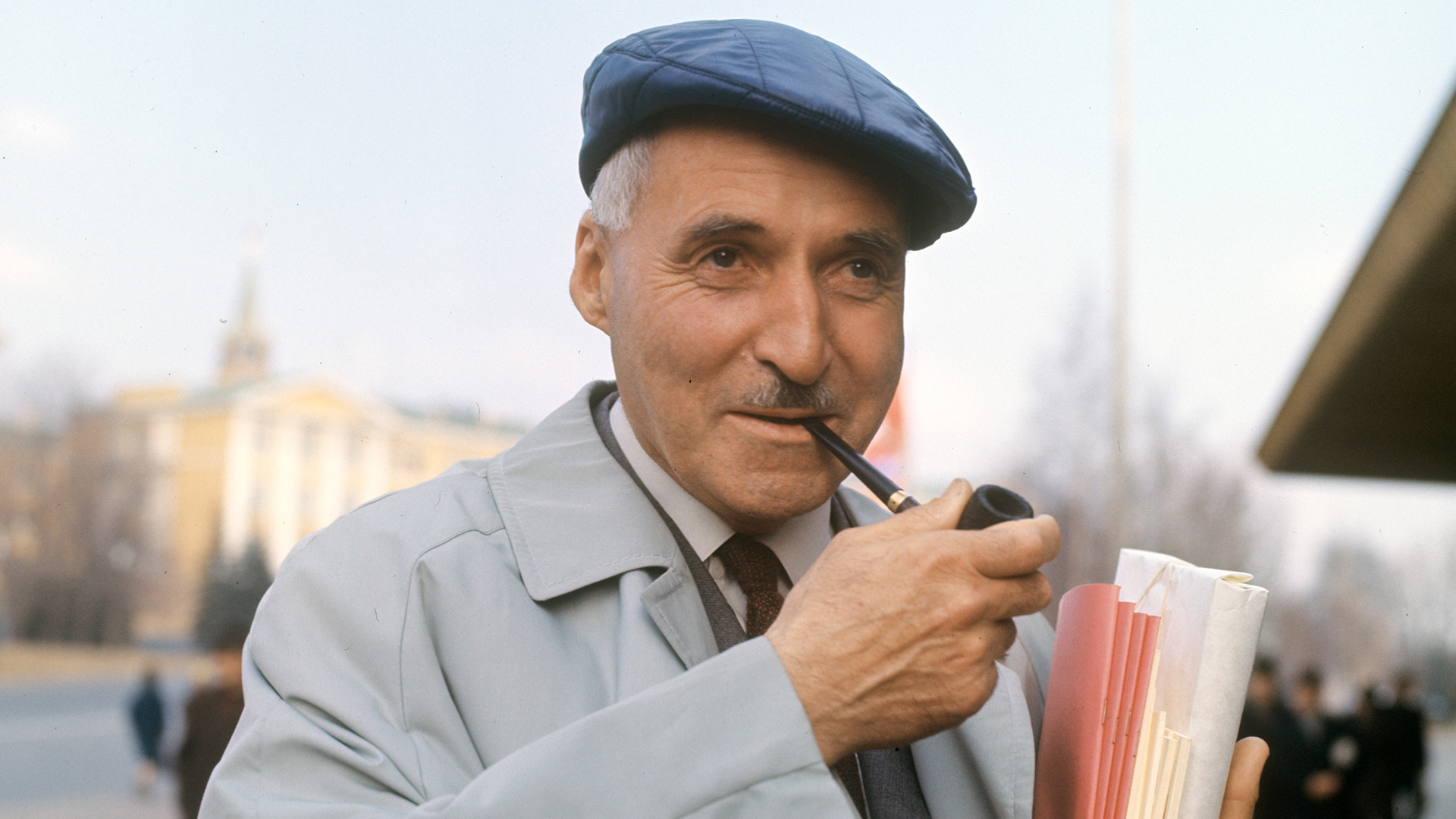
10 most adapted Russian & Soviet writers in the world
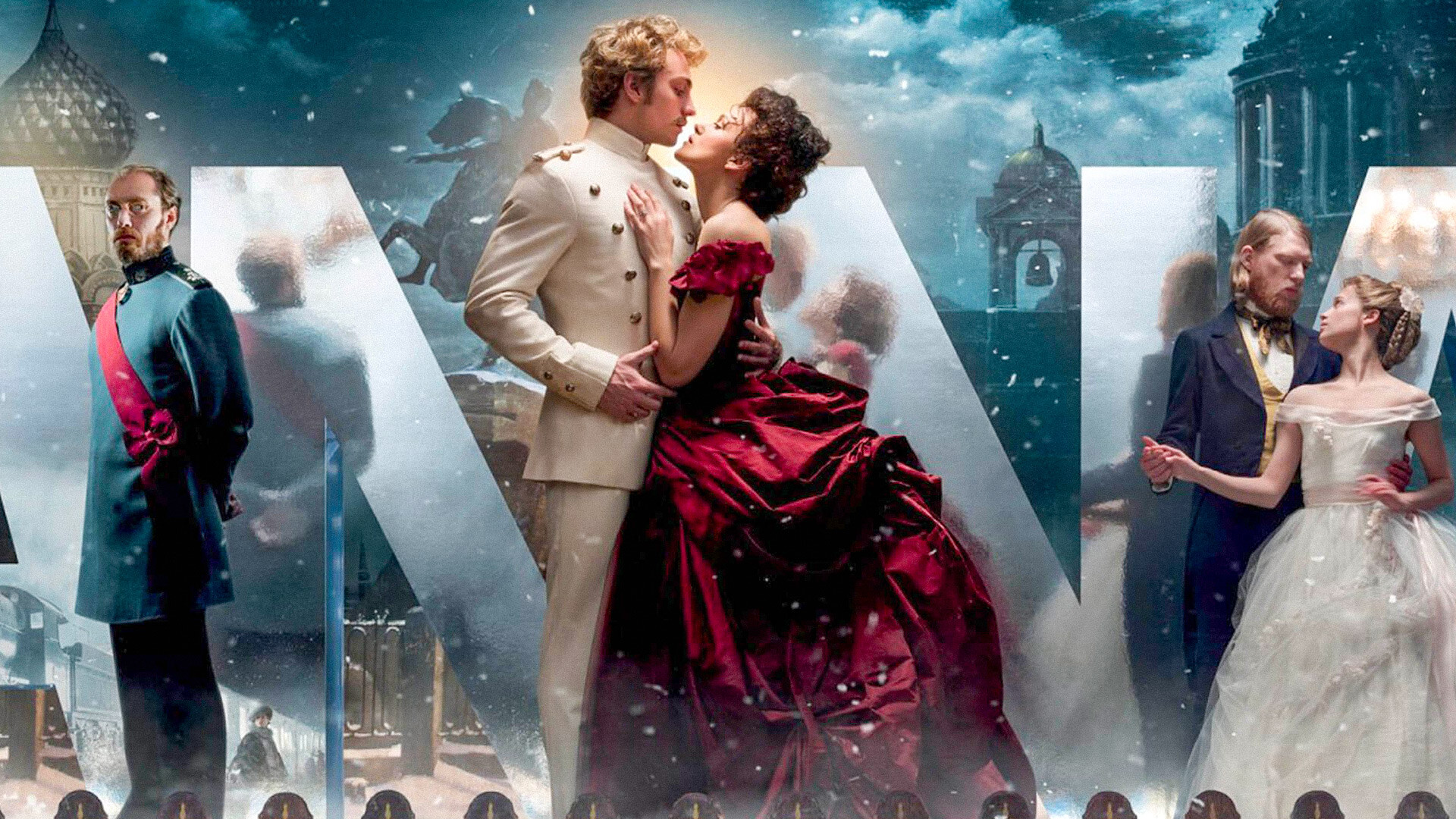
10. Ilya Ilf & Yevgeny Petrov – 35 adaptations
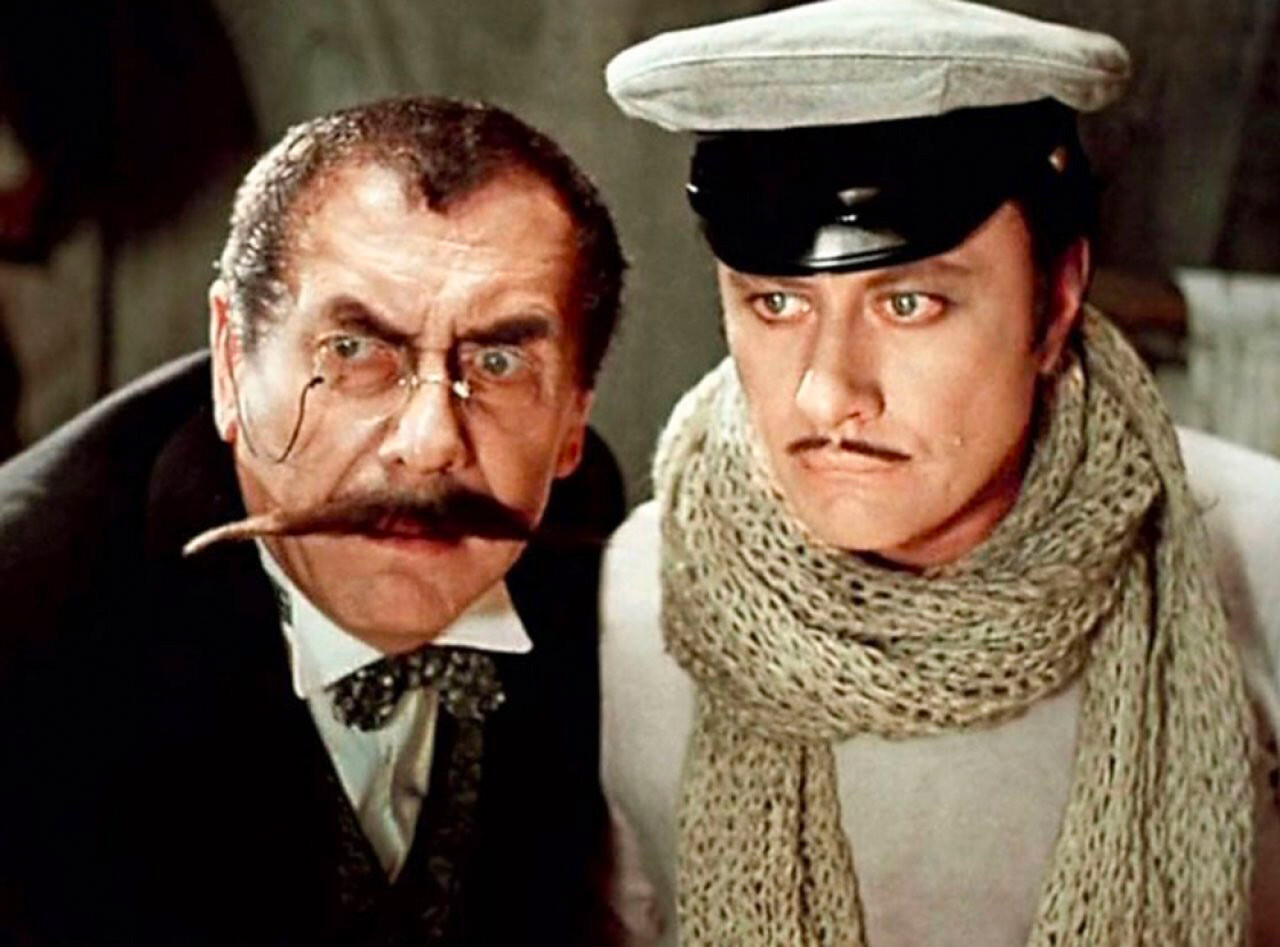 A still from 'The Twelve Chairs'
A still from 'The Twelve Chairs'
Satirists Ilf and Petrov are probably the wittiest Soviet writers. Many of their phrases (like the immortal aphorism: “The rescue of a drowning man is the drowning man's own job”) have firmly entered the lexicon. But, their real fame came from another joke or, to be more precise, a successful prank. They managed to convince the censors that their charismatic swindler Ostap Bender – the hero of their novels ‘The Twelve Chairs’ and ‘The Little Golden Calf’ - was definitely a negative character. No more than a shard of that old bourgeois world, smashed by the 1917 Bolshevik Revolution. However, readers understood everything correctly and wholeheartedly fell in love with Bender – for his sharp mind, resourcefulness and inner nobility.
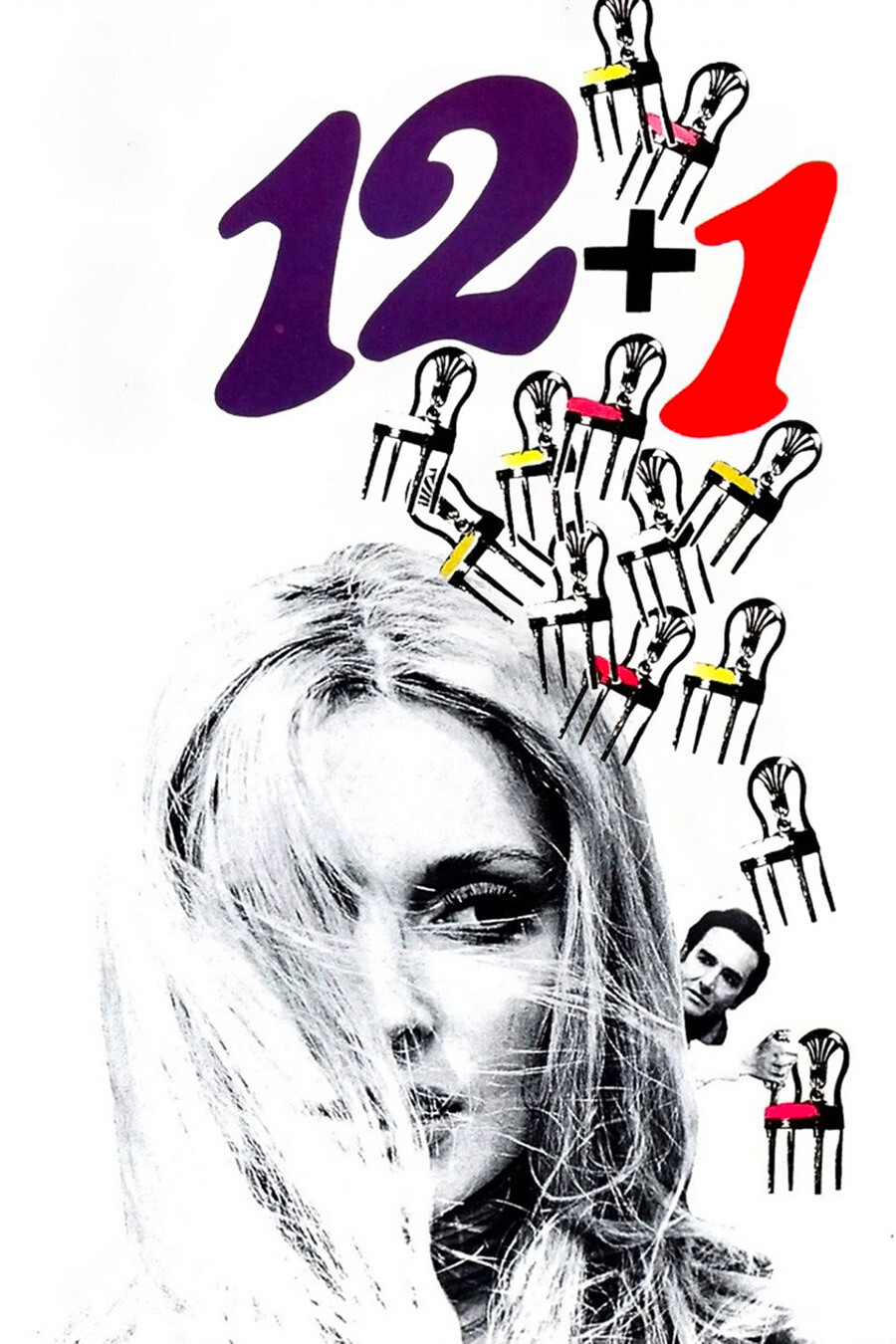 A poster for 'The Thirteen Chairs' starring Sharon Tate
A poster for 'The Thirteen Chairs' starring Sharon Tate
The novel ‘The Twelve Chairs’ was adapted for screen at least 20 times – in the USSR, the U.S., Germany, Australia and many other countries. In different years, Bender was played by Andrei Mironov, Tobias Moretti (star of the TV show ‘Inspector Rex’), Frank Langella and even a woman – Sharon Tate (the late wife of Hollywood director Roman Polanski).
9. Alexey Tolstoy – 38
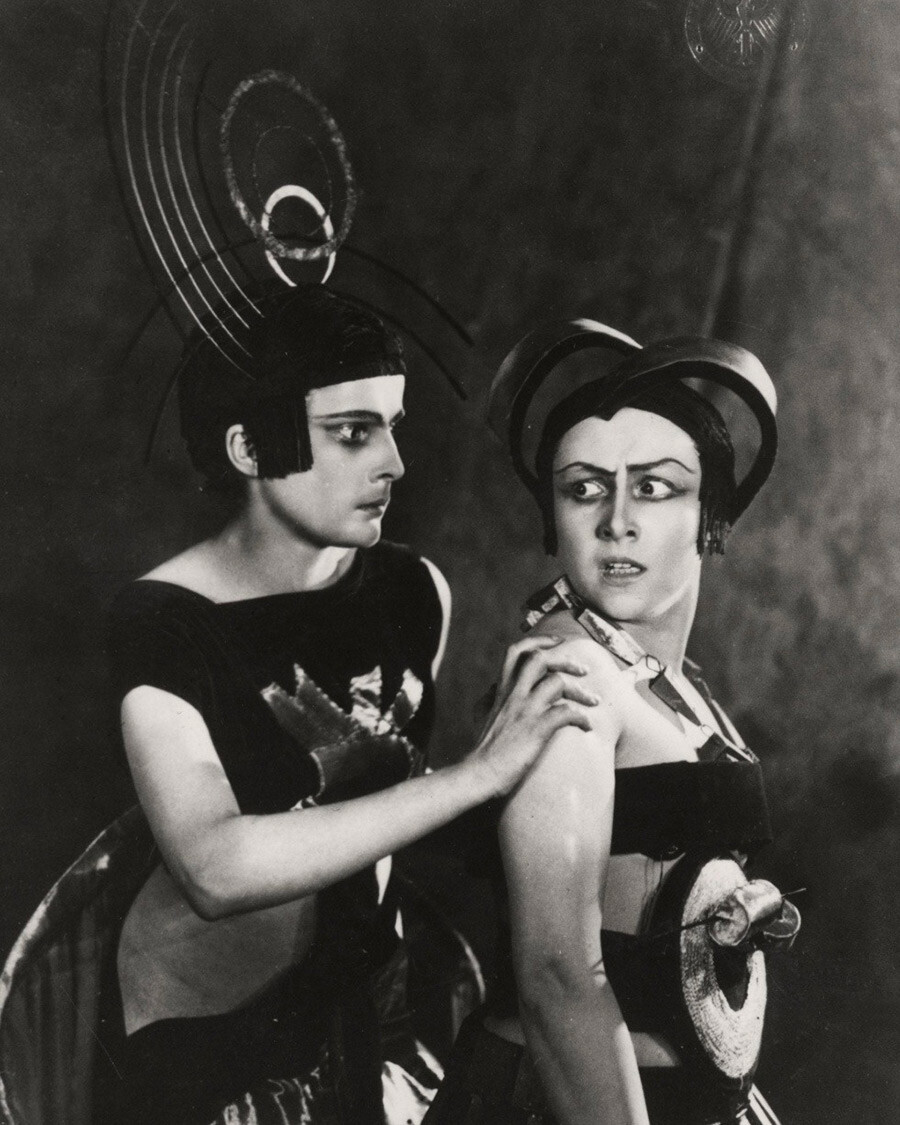 A still from 'Aelita'
A still from 'Aelita'
Alexey Tolstoy, ‘the Soviet Count’ and a distant relative of Leo Tolstoy, wrote canonical works in several genres of Soviet literature, so he enjoyed the continuous interest of the USSR’s cinematographers. First, Tolstoy wrote epic historical novels – like ‘Peter the Great’ and ‘The Road to Calvary’ (about the Russian Civil War). Then, he became one of the first popular science fiction authors – the first Soviet sci-fi movie ‘Aelita’ was based on his novels; his novel ‘The Garin Death Ray’ was also adapted for the screen twice. Finally, he was also a children’s author. And the largest number of adaptations – both live play and animated – belong to his fairy tale work ‘The Golden Key’, which, in turn, was a free retelling of ‘Pinocchio.’
8. Mikhail Bulgakov – 57
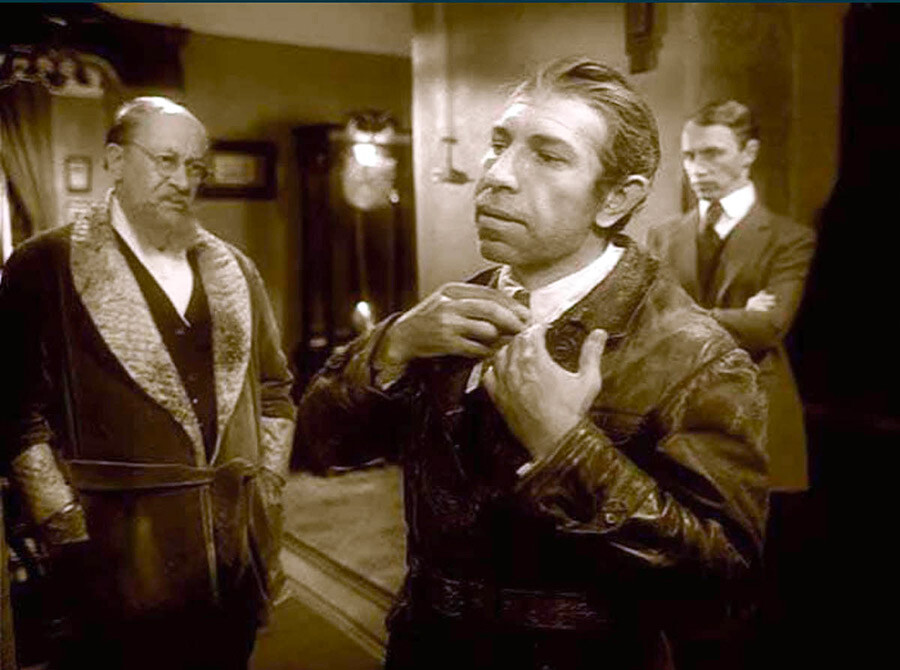 A still from ‘Heart of a Dog’
A still from ‘Heart of a Dog’
Mikhail Bulgakov wasn’t a stranger to the genre of speculative fiction, either. The adaptation of his novella ‘Heart of a Dog’ (1988) – about a scientist who manages to turn a stray dog into a man – regularly supplies the Russian Internet with memes. Leonid Gaidai’s “chrono-opera”, ‘Ivan Vasilievich changes his profession’ (1973; after Bulgakov’s play), is one of the most popular Russian comedies of all time. Historical prose by Bulgakov about the Civil War was also often adapted for the screen – the novel ‘The White Guard’ and the play ‘The Days of the Turbins’.
But, of course, his mystical novel ‘The Master and Margarita’ evokes the strongest interest from cinematographers – about the arrival of the Devil to Moscow. However, there hasn’t yet been a single generally accepted successful adaptation – cinematographers blame the “cursed” text itself and, yet, they keep turning back to it. In Winter 2023, a fifth attempt to adapt it is scheduled to be released – with August Diehl (‘Inglourious Basterds’) starring as the Devil Woland.
7. Sergey Mikhalkov – 65
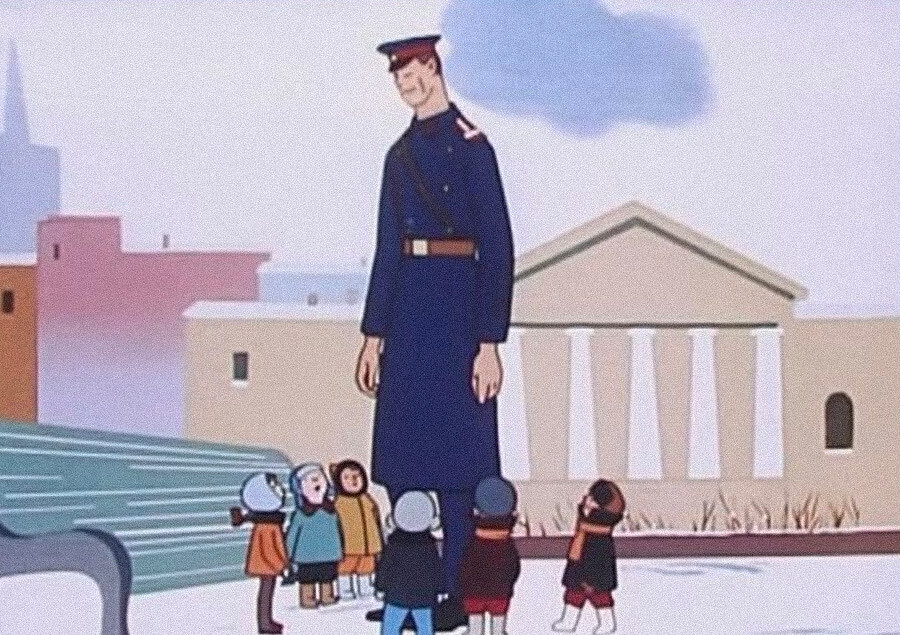 A still from ‘Uncle Styopa’ animated film
A still from ‘Uncle Styopa’ animated film
Mikhalkov, the author of the lyrics for both the Soviet and Russian anthems, was an incredibly active author. He wrote, first of all, for children; with that, he adapted many “adult” genres for a young audience. For example, the adventure anti-western satire ‘Precious Boy’ (1974), about the kidnapping epidemic in the West, with the son of a Soviet diplomat falling victim to it, was based on his play. But, he made it onto the list of the top 10 adapted writers thanks to animation – dozens of cartoons are based on his fables and poems. The most popular among them is about ‘Uncle Styopa’, an exemplary Soviet policeman.
6. Ivan Turgenev – 131
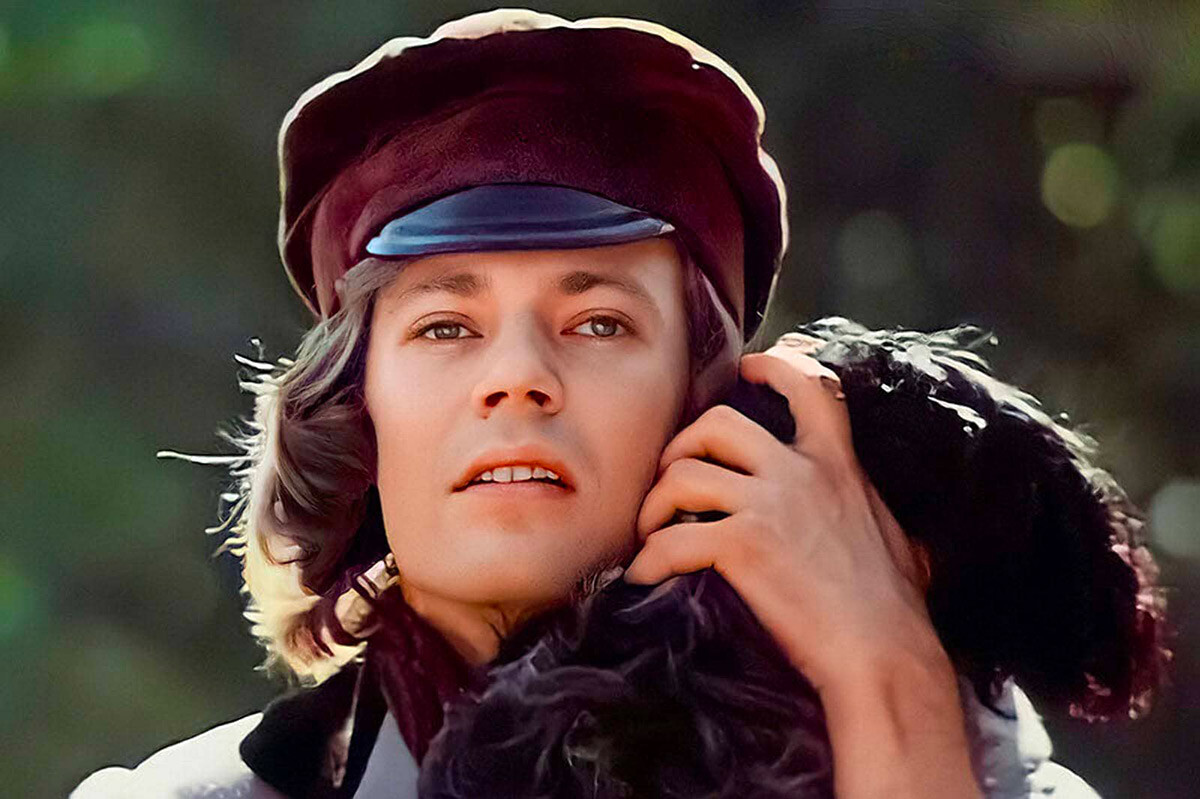 A still from ‘Fathers and Sons’
A still from ‘Fathers and Sons’
It was with Turgenev that the recognition of Russian literature in the West actually began. Turgenev spent a long time living in Europe, he was on friendly terms with Gustave Flaubert and George Sand, was himself a quite popular as a writer, but he did a lot to promote his fellow writers. And, although, in the end, Tolstoy and Dostoevsky outshone him, Turgenev persists as one of the most popular authors in Russia and abroad. His novels and short stories are regularly adapted for the screen. From his short stories – for example, ‘Mumu’ (four adaptations), about the friendship of a dog and deaf and mute serf named Gerasim. From his novels – ‘Fathers and Sons’ (13 adaptations), about the eternal conflict between generations.
5. Alexander Pushkin – 196
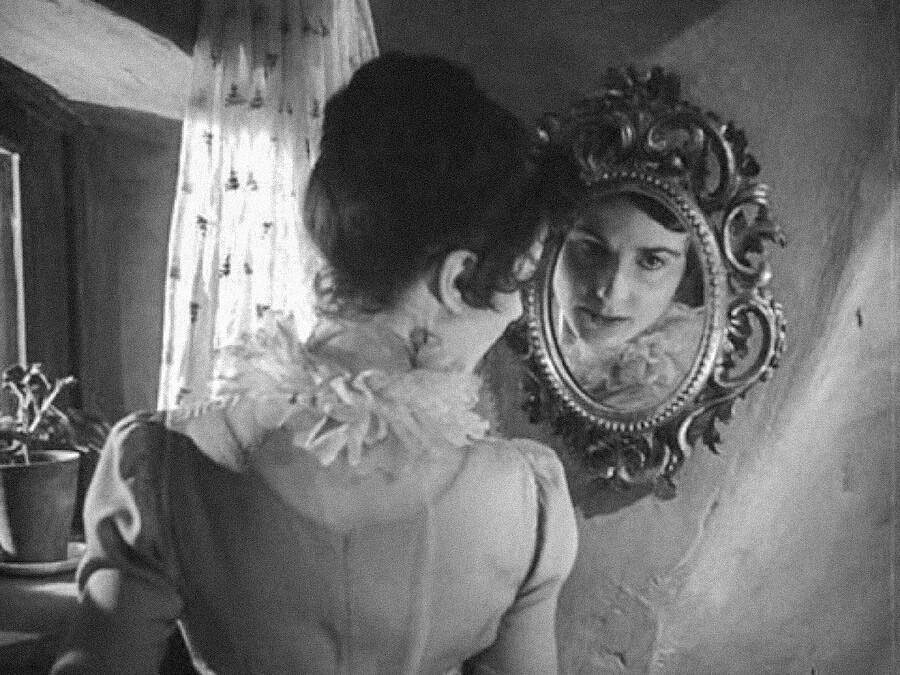 A still from ‘The Queen of Spades’
A still from ‘The Queen of Spades’
Pushkin – Russia’s leading poet – said that, in the moments when inspiration left him, he would write prose. Almost all of his prosaic and dramatic works have been adapted for the screen at least once – from the historical drama ‘Boris Godunov’ (clearly influenced by the historical chronicles of Shakespeare) to his novella ‘The Captain’s Daughter’ and ‘The Belkin Tales’ series. Cinematographers especially liked ‘The Queen of Spades’ (21 adaptations), which has been staged as a horror movie since the era of silent films. In particular, one of its best adaptations belongs to British film director Thorold Dickinson (which was released in 1949). But, most of all, it’s fairy tales in verse that made Pushkin an incredibly adapted author – ‘The Tale of the Fisherman and the Fish’, ‘The Tale of Tsar Saltan’ and the poem ‘Ruslan and Ludmila’, to name a few.
4. Nikolai Gogol – 210
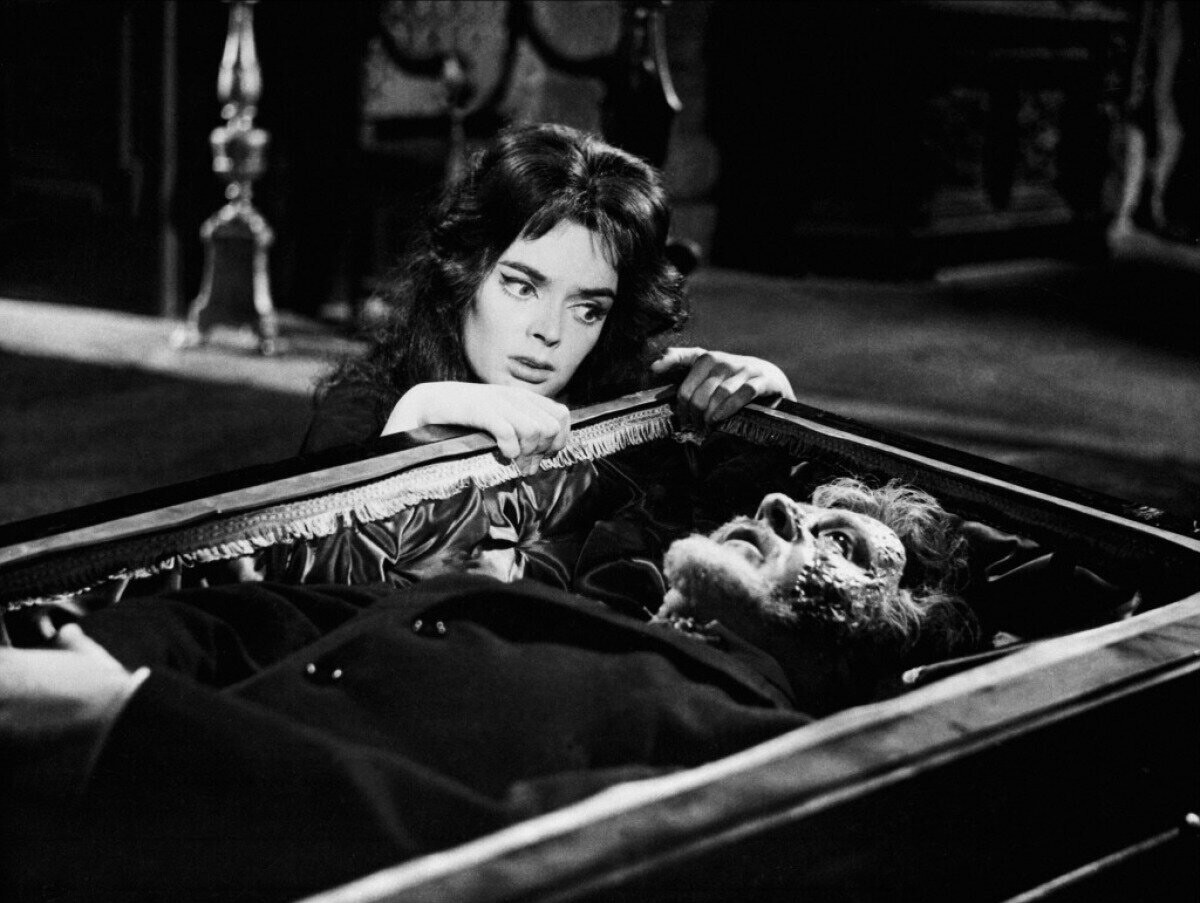 A still from 'Black Sunday' horror film, based on Gogol's 'Vyi'
A still from 'Black Sunday' horror film, based on Gogol's 'Vyi'
Gogol’s ‘The Government Inspector’ – about a simpleton passer-by, who everyone mistakes for an inspector from the capital – remains a hit both on stage and in cinema. It was adapted for the screen at least 17 times (including TV shows). The last time was in 2014. The plot of the movie ‘Fool’s Day’ takes us to our day. His other plays – ‘The Gamblers’ and ‘Marriage’ – have also been adapted, but more rarely.
For understandable reasons, when it comes to the prosaic works of Gogol, his horror novellas are popular, with ‘Viy’ taking the lead (10 adaptations). In particular, its adaptation from 1967 is still considered the best example of Russian horror. Aside from that, Italian director Mario Bava filmed one of his best movies, ‘Black Sunday’ (1960), based (although very loosely) on ‘Viy’. As Tim Burton confessed, it was this film that significantly influenced the visual design of ‘Sleepy Hollow’ (1999).
3. Leo Tolstoy – 235
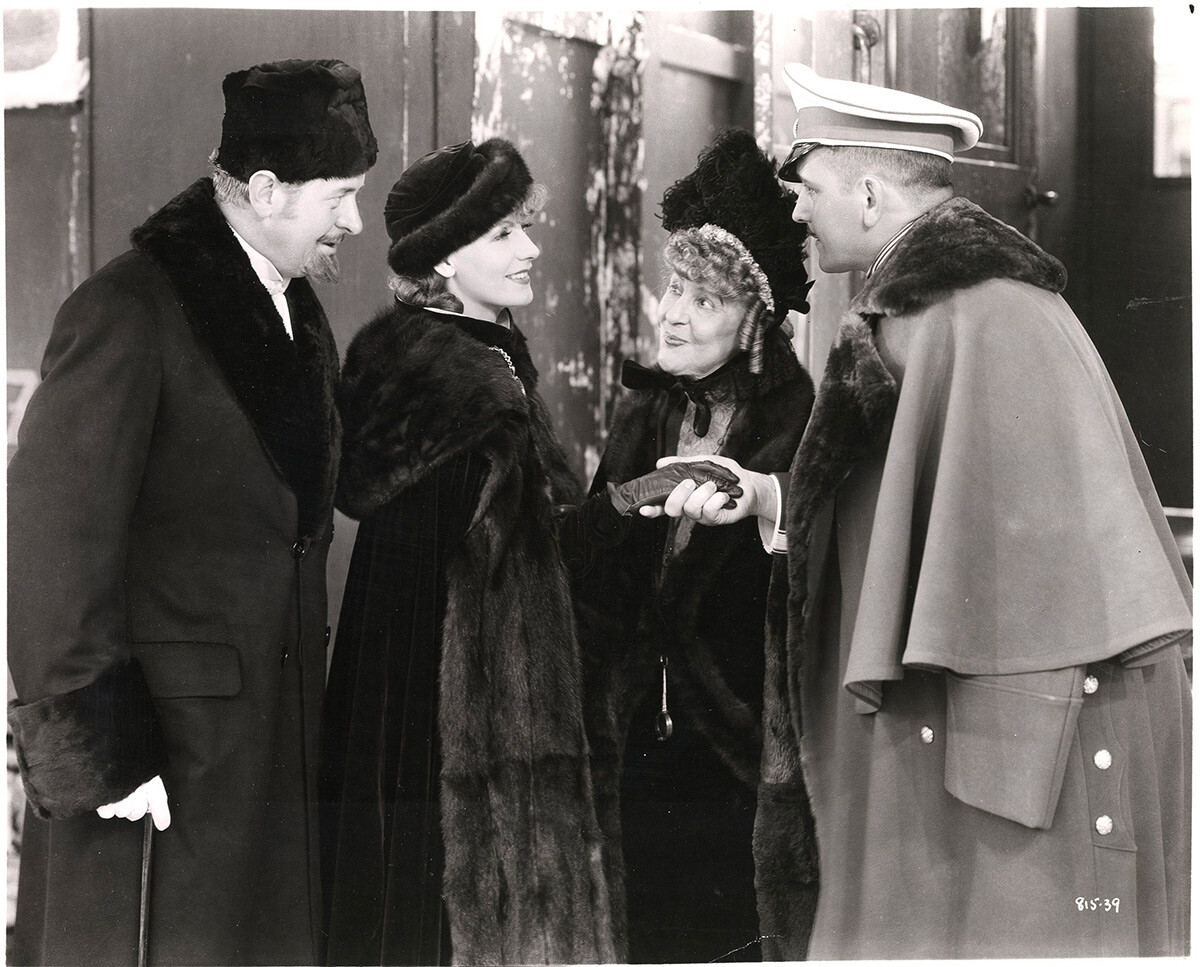 A still from the movie "Anna Karenina" (1935) with Greta Garbo
A still from the movie "Anna Karenina" (1935) with Greta Garbo
Tolstoy’s authority is undeniable and indisputable. However, there are not many film or TV adaptations of his main novels. There’s a simple explanation for this – Tolstoy wrote epic stories that are difficult to transfer without loss, not only in film format, even in the form of a series of films or TV series.
But, of course, there are bold people who still try. For example, ‘War and Peace’ has nine adaptations, the most famous of them being the American one from 1956 with Audrey Hepburn, as well as the Soviet one from 1965, which won an Oscar. ‘Anna Karenina’ has been adapted 22 times. The latest one, at the time of writing, is the Mexican TV show ‘Volver a caer’ (‘To Fall Again’) – which came out in 2023. Most often, ‘Anna Karenina’ gets adapted for screen in Russia, as well in the UK and the U.S.; however, the tragic love and betrayal story has also been retold by directors from Australia, Egypt, India and other countries.
2. Fyodor Dostoevsky – 308
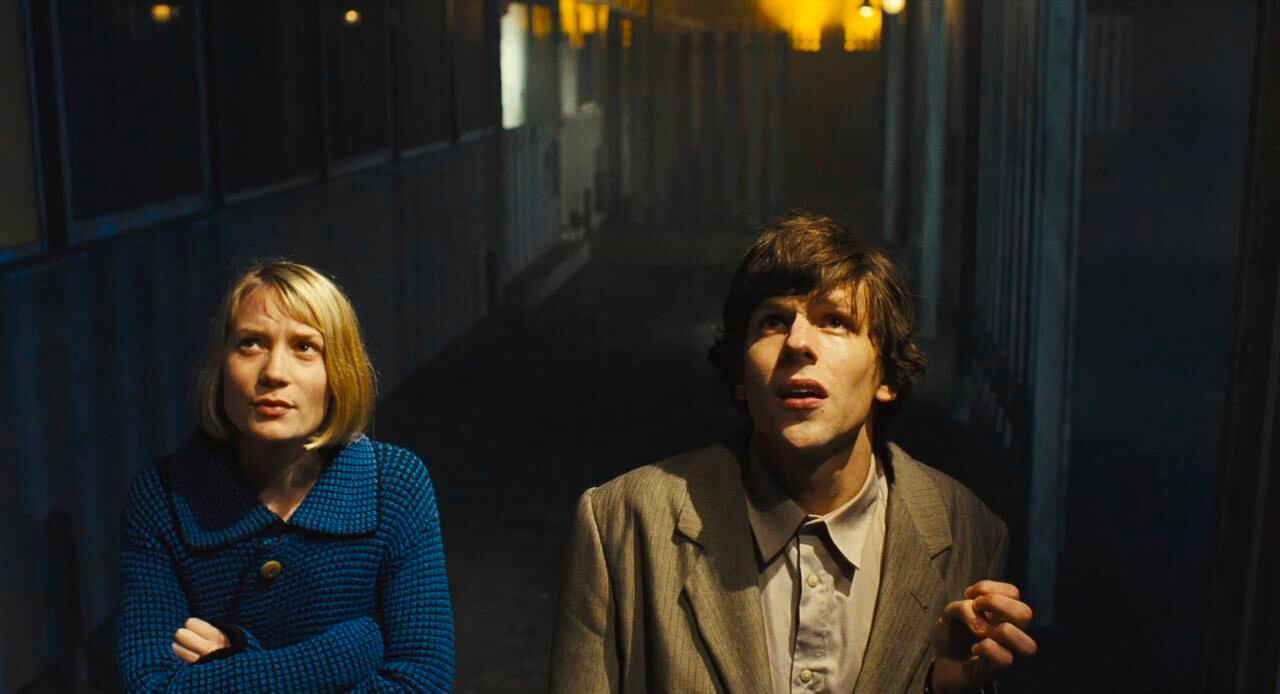 A still from 'The Double'
A still from 'The Double'
Dostoevsky has seriously bested Tolstoy in this rating for a range of reasons. First, his novels are often shorter. Second, there are more novels (eight versus the classic three novels by Tolstoy), not even taking into consideration his novellas. Third, Dostoevsky’s plots are not that strongly linked to their era and they’re easier to adapt to modern times and other countries. An example of that is the thriller movie ‘The Double’ (2013), based on the novella of the same name starring Jesse Eisenberg and Mia Wasikowska. Or the romantic drama ‘Two Lovers’ (2008) based on ‘White Nights’, with the main roles performed by Joaquin Phoenix and Gwyneth Paltrow.
By the way, ‘White Nights’ remains one of the most adapted works by Dostoevsky (at least 25 adaptations). But, of course, the novel ‘Crime and Punishment’ is beyond any competition. A whole 60 movies, TV shows and even animations are based on it. Perhaps, the most successful screen adaptation is ‘Pickpocket’ (1959) by Robert Bresson (the events take place in France). According to Christopher Nolan, when working on ‘Dunkirk’ (2017), he studied how Bresson created tension in ‘Pickpocket’.
1. Anton Chekhov – 631
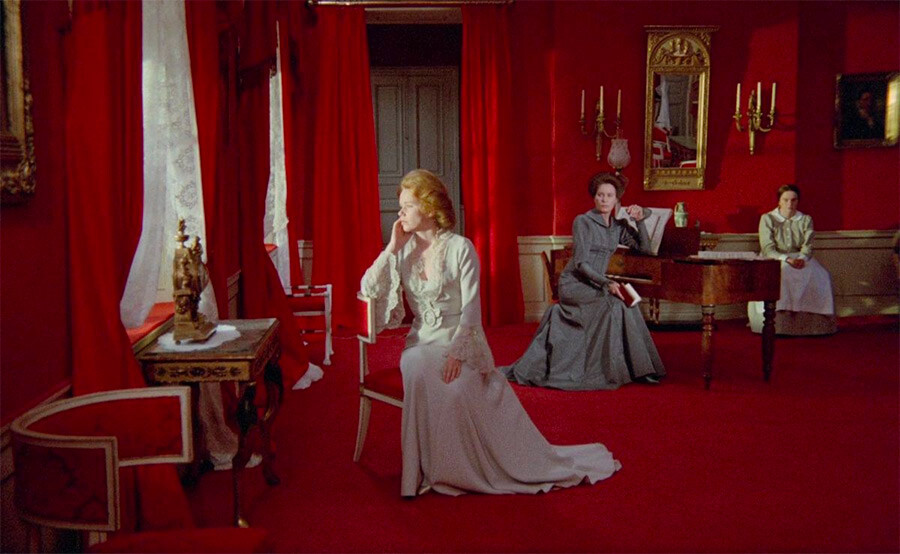 A still from 'Cries and Whispers'
A still from 'Cries and Whispers'
Classical plays are always more favorable for screen adaptation than any other types of text. So, it’s not surprising that Chekhov turned out to be among the most adapted authors in the world. His great plays – ‘The Seagull’, ‘Uncle Vanya’, ‘The Cherry Orchard’ and others – have dozens and even hundreds of adaptations. Among the directors who turned to Chekhov are Ingmar Bergman (his masterpiece ‘Cries and Whispers’ was inspired by ‘Three Sisters’), Louis Malle (‘Vanya on 42nd Street’ based on ‘Uncle Vanya’), Sidney Lumet (‘The Seagull’) and many more. However, the Russian playwright is still far from the world record – Shakespeare’s works have been adapted for the screen more than 1,600 times.


